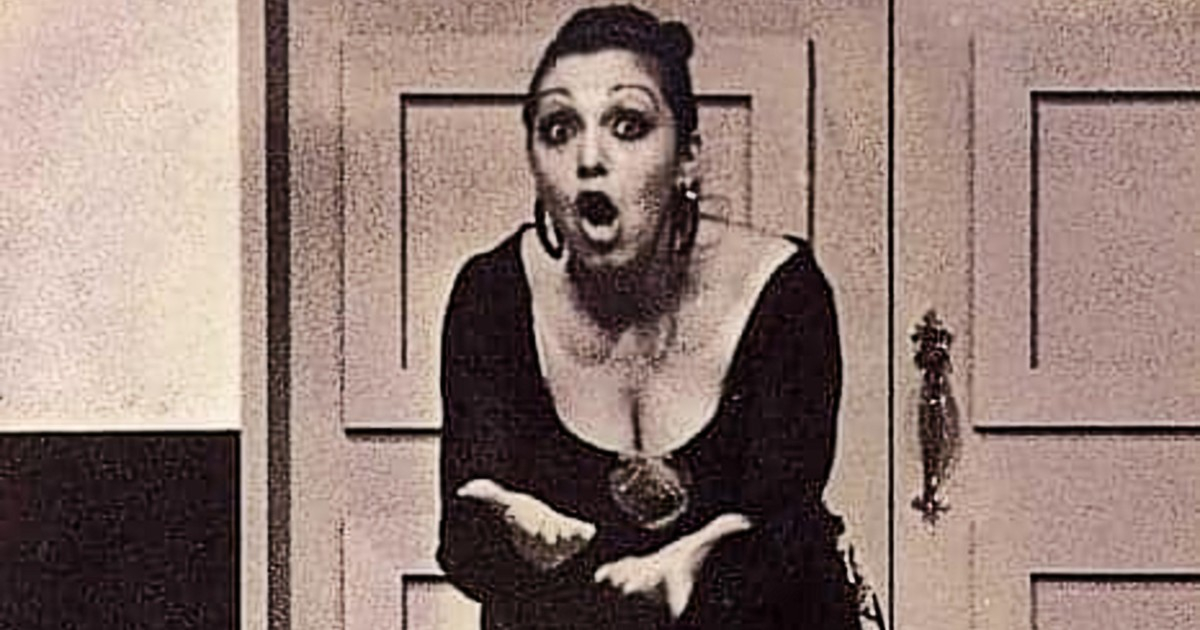
The Cuban actress and singer Nattacha amateur died in Aurora, Colorado, of complications associated with the coronavirus, which he contracted twice during complicated medical treatment. He was 72 years old.
The death of Nattacha, a well-known figure in the theater and art world of Miami, occurred last Friday night at the family home in the city of Aurora, after going through a long period of heart complications and respiratory, and various hospitalizations.
“She died the way she wanted, in the house, surrounded by her three children and her daughter-in-law,” he told CiberCuba his daughter, Yamilé Loreto Amador. “I lost my best friend, my teacher and my lifelong companion.”
Yamilé reported that his mother went through a prolonged and tense medical process after contracting COVID-19 in early February. She underwent surgery in Miami to remove a bulky hiatal hernia and after surgery suffered two cardiac arrests, which kept her hospitalized for 40 days.
He then went through a period of rehabilitation, as the coronavirus had limited his locomotion abilities. Since the end of July he was in medical treatment in Aurora, Colorado, where he contracted COVID-19 for the second time and his health deteriorated.
“She was another of our great artists, Nattacha Amador, possessing a prodigious contralto voice and a stage temperament that made her one of our most admired first actresses on the Miami scene.” expressed Julie De Grandy, friend and colleague of the actress.
Nattacha was a prominent figure in theater, television and entertainment in general. His role in Miami theater groups such as Avante and Prometheus, television series such as What’s up, USA? concerts and musical programs of the city, identified her as a Cuban-American artist with a strong dramatic personality, versatility and unique charisma.
Born in Havana on April 18, 1949, Nattacha emigrated to the United States at the age of 10. daughter of Juan Amador Rodríguez, Senator of the republican stage and later radial commentator in Miami, the family left Cuba in 1959, after the arrival of Fidel Castro to the power.
He attended high school at Edison and Miami Jackson High Schools, where his artistic talents began to emerge.
Its professional debut in the theater took place in the decade of 1970, interpreting the paper of Marion a A girl in my soup, by Terence Frisby.
“He also possessed an unusual gift for comedy, which he demonstrated in theater and television,” De Grandy recalled. Guided by her tutor and mentor, Griselda Noguera, the actress got into the character of Magdalena in the play by Federico García Lorca, The house of Bernarda Alba.
Many remember his performances on stage since the late 70s and 80s, when the theater gained particular heyday in the city with the birth of groups and the creation of the Miami Hispanic Festival, which later became an event of international character with the decisive impetus of Mario Ernesto Sánchez, founder of Teatre Avante in 1978.
That same year she played the role of Clytemnestra in Electra Garrigó, a classic by Virgili Piñera that marked the start of Teatro Avante in Miami, under the direction of the legendary Francisco Morín.
“I remember it as if it were yesterday [1988], During the premiere of Blood Wedding“Where the actress Marilyn Romero acted,” he recalled in his block the journalist Roberto Álvarez-Galloso. “I’ve never seen a performance [de Bodas de Sangre] like that of Nattacha Amador “.
He also played Aldonza in The man of La Mancha by Mitch Leigh, where he shared the stage with actor Miguel De Grandy, father of Julie De Grandy and members of a Cuban family with a long tradition in the theater.
The role of Jill Tanner in Butterflies are free, By Leonard Gershe; the one of Cuca a The night of the assassins, By José Triana; that of Berta a An empty shoe box, De Virgili Piñera; or that of La Chunga, in the play of the same name by Mario Vargas Llosa, where he shared the stage with his daughter Yamilé Amador and his partner Mario Sales-Lanz; are some of his memorable performances, according to De Grandy.
By this time he was part of the cast of the successful series What’s up, USA? (1977-1980), a television classic in the United States.
In the 80s he enlivened the bohemian nights of Miami by duoing with Mario Sales-Lanz. It was with the contribution of both of them that the La Guineu i el Corb space in the Basque Center became a place to unload and find, with great popularity among admirers who filled the place week after week.
Nattacha also had a stake in American cinema with Curd (1996), by director Reb Braddock, and in the popular soap opera Guadalupe (1993), filmed in scenes of Miami for the chain Telemundo, with the collaboration of Spanish Television.
In his tribute, De Grandy also recalled that “Nattacha turned Pedro Tamayo’s song into an anthem, Give it time to time, Which he defended at the OTI Festival in 1980. His voice resonated in the trova, in the zarzuelas of [la Sociedad Pro-Arte] Grateli, in operas, musicals, concerts and recitals “.
“Many of us were lucky enough to share stage with her and have fond memories of those experiences … Artists like Nattacha are hard to find and impossible to forget,” De Grandy concluded.
Nattacha is survived by his sons Yamilé and Rafael Loreto Amador, and Miguel Angel Cruz Amador, as well as two granddaughters and four great-grandchildren. His brother Joan Amador Jr., a painter and concertmaster, had died in 1992.
Fulfilling his last will, his corpse will be burned. A tribute mass will be held soon in Miami.
“She wanted us to burn her and we would climb the highest mountain to water her ashes in the air, and we will do so,” said Yamilé Loreto Amador.